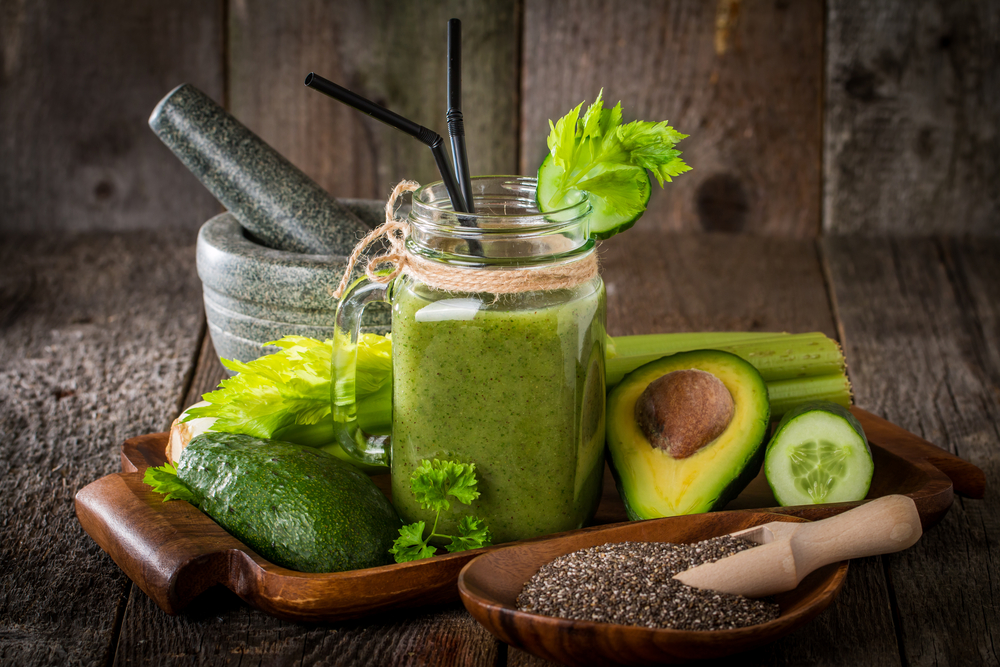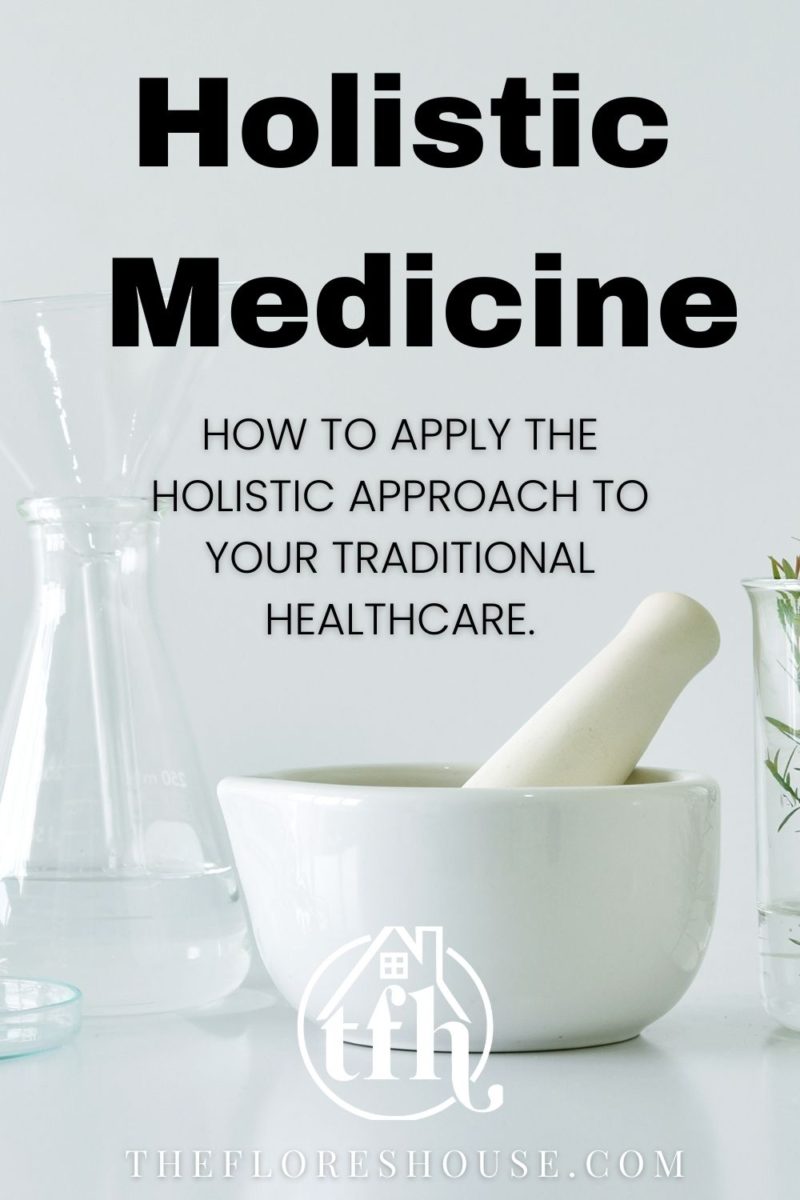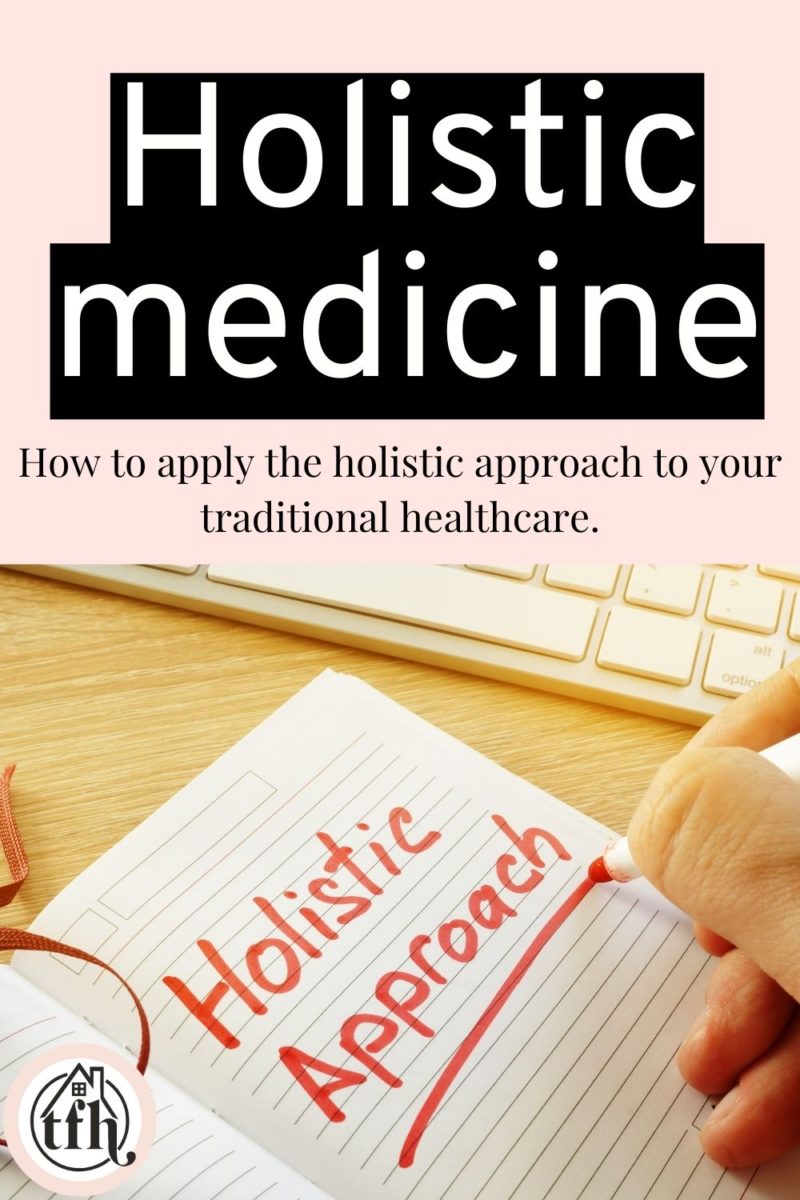Holistic medicine is whole-body healing that focuses on much more than symptoms. Learn how to apply a holistic approach to your traditional healthcare routine.

DISCLAIMER: THIS WEBSITE DOES NOT PROVIDE MEDICAL ADVICE: The information, including but not limited to text, graphics, images, and other material contained on this website is for informational purposes only. No material on this site is intended to be a substitute for professional medical advice, diagnosis, or treatment. Always seek the advice of your physician or primary care provider with any questions you may have regarding a medical condition or treatment and before undertaking a new health care regimen, and never disregard professional medical advice or delay in seeking it because of something you have read on this website.
Holistic medicine represents a philosophy of healthcare that emphasizes the body’s own inherent ability to heal itself. Unlike traditional medicine, which focuses on treating specific symptoms with targeted drugs and procedures, holistic practitioners look at an individual’s health as a whole, considering diet, nutrition, physical activity, emotional well-being, and any illness or disease the person may be experiencing. If you want to achieve better overall health and live longer in good health and happiness, you may want to try some of these holistic approaches to your healthcare needs.
This post is all about how holistic medicine and traditional healthcare can improve your overall health and well-being.

What is holistic health care?
Holistic healthcare is a type of care that looks at the whole person rather than just treating a single symptom or condition.
It’s based on the belief that all aspects of our lives affect our overall health and wellness.
Regarding our health, holistic practitioners believe we should take a proactive approach to achieve and maintain optimum health. So, what exactly is holistic wellness?
Holistic Wellness
While alternative medicine may be considered holistic, there is more to holistic wellness than alternative treatments.
A holistic approach considers the whole person—body, mind, and spirit—and not just the physical symptoms of whatever condition someone may be facing.
This approach recognizes that everything in the body is interconnected and every one is unique.

What is the difference between holistic and natural medicine?
Holistic medicine is a type of natural medicine that considers the whole person – mind, body, and spirit.
This approach contrasts with the more traditional Western approach, which often focuses on treating the symptoms of a disease or condition.
Other Types of Natural Medicine
Natural medicine is an alternative form of medicine with roots in ancient history. Alternative therapies
include holistic healthcare practices such as integrative healthcare, functional medicine, naturopathy, and homeopathy.
They believe illness occurs when either excess or energy deficiency in these meridians. Homeopathy has been used for over 200 years to treat various conditions, including mental, skin, digestive, and respiratory disorders.
Some disciplines of naturopathy include acupuncture, herbal remedies, therapeutic touch, chiropractic manipulation, diet counseling, and dietary supplements.
Alternative medicine practitioners may also use colon hydrotherapy (a treatment to cleanse the large intestine), eye movement desensitization and reprocessing (EMDR) therapy, and meditation to help patients heal from emotional distress.

What are some examples of treatments offered in a holistic approach to health care?
A holistic approach to health care focuses on the whole person, not just their symptoms. This means looking at the root cause of a problem instead of just treating the symptoms.
For example, integrative medicine may use nutrition therapy to help treat a patient with depression rather than only prescribing medication.
Functional medicine looks at how all the systems in the body work together and how they can be optimized for better health.
Most importantly, holistic wellness focuses on achieving balance in all areas of life, including physical, mental, emotional, and spiritual health.
Holistic medicine is a type of healing that focuses on treating the whole person – body, mind, and spirit.
The body is a network of systems. When one system becomes ill, the others have complications. All systems – the whole person – must be considered to treat illness. Mind-body healing is the standard in holistic medicine.
The body is a network of systems. When one system becomes ill, the others have complications. All systems – the whole person – must be considered to treat illness effectively.
Mind-body healing is standard in holistic medicine.

Should You Try Holistic Medicine?
This approach is gaining popularity as more people seek ways to achieve better overall health.
While holistic medicine is not a replacement for traditional medical care, it can be used to complement and support it. Find a board-certified medical doctor practicing functional and/or integrative medicine.
If you’re considering holistic medicine, here are a few reasons it may be right for you.
- You want to get well, not just mask symptoms with prescription drugs.
- You want to improve your lifestyle and need help making those changes.
- You have a chronic disease like obesity, diabetes, heart disease, or cancer.
- You wish to improve or eradicate autoimmune disease symptoms.
- You struggle with anxiety and depression.
- You struggle with your weight and eating healthily.
- You suffer from chronic fatigue or chronic pain.
- You wish to live a long, happy, and healthy life through disease prevention!
How can you start benefitting from holistic health care?
There are many ways to start benefitting from holistic health care. You can start by making simple lifestyle changes, such as eating healthier and exercising regularly.
You can also try incorporating complementary and alternative therapies into your life, such as yoga, meditation, or massage therapy.
If you’re interested in exploring more unconventional approaches to health care, you can look into acupuncture, aromatherapy, or energy healing.
Dr. Terry Wahls recommends several alternative therapies to her MS patients, including E-Stim (electrical pulse therapy).
Final thoughts on how holistic health care helps with overall wellness.
Holistic health care takes a more natural approach to healing and overall wellness.
This type of care looks at the whole person, not just the symptoms they are experiencing.
Functional medicine is a type of holistic care that takes this approach one step further by working to find the root cause of imbalances and illnesses.
Start by finding a doctor who practices integrative and functional medicine to begin a holistic approach to your healthcare.





